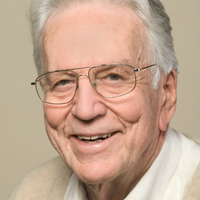cloning

Infographic: Phage Display Allows Rapid Screening of Millions of Peptides
Shelby Bradford, PhD | Dec 4, 2023 | 3 min read
A viral protein expression method links proteins and their coding instructions, enabling easier target identification for downstream analysis.

Ian Wilmut, Famed Scientist Who Led the Creation of Dolly the Sheep, Died at 79
Shelby Bradford, PhD | Sep 12, 2023 | 3 min read
Knighted in 2008, Sir Ian Wilmut revolutionized the field of cloning, stem cell research, and regenerative medicine.

Cooking up the Perfect PCR Reaction
MilliporeSigma | 1 min read
Discover how to obtain optimal PCR results by selecting the right DNA polymerase and optimizing the reaction buffer.

Cellular Competence: Making Recombinant DNA Accessible
Nathan Ni, PhD | Jun 1, 2023 | 2 min read
Coaxing bacteria into taking up recombinant DNA was arduous until Douglas Hanahan took action.

How a Grasshopper Gave Up Sex, Took Up Cloning
Dan Robitzski | Nov 1, 2022 | 5 min read
Meet the grasshopper that has reproduced asexually for a quarter of a million years—without acquiring undue numbers of harmful mutations.

Scientific Breakthroughs with Stem Cells
Nele Haelterman, PhD | 1 min read
Discover the various ways scientists bolster stem cells to understand and cure disease.

Fungal Cold Adaptation Linked to Protein Structure Changes: Study
Patience Asanga | Sep 20, 2022 | 4 min read
Environmental pressure seems to spawn changes in the intrinsically disordered regions of enzymes in polar yeasts, allowing them to adapt to extreme cold.

Opinion: The Reproductive Technology Advances No One Asked For
John D. Loike and Alan Kadish | Jun 22, 2022 | 4 min read
Cloning and parthenogenesis of humans wouldn’t align with bioethical principles.

Capturing Heterogeneity: How Single Cell Analysis Reshapes Health and Disease Research
The Scientist | 1 min read
Timothy O’Sullivan and Jacob Blum will discuss how they use single cell data to understand complex biological systems.

Pioneering Molecular Virologist Flossie Wong-Staal Dies
Amanda Heidt | Jul 14, 2020 | 3 min read
The University of California, San Diego, researcher helped identify the HIV retrovirus responsible for AIDS and developed treatments still in use today.

Scientists Clone SARS-CoV-2 Genome with Quick Yeast-Based Method
Ruth Williams | May 6, 2020 | 4 min read
The use of yeast artificial chromosomes has enabled the rapid genetic reconstruction of the novel coronavirus.

LabTalk Podcast - Bugs with Drugs: Repurposing a Pathogenic Bacteria’s Weapon
The Scientist | 1 min read
Cammie Lesser describes her research developing designer probiotics to deliver protein-based therapeutics to the gut.

David Hogness, Revolutionary of 20th Century Genetics, Dies
Amy Schleunes | Jan 20, 2020 | 2 min read
The Stanford University researcher’s groundbreaking work connected the fields of molecular biology and genetics, paving the way for the founding of genomics.

Cloning Scientist Sentenced to 12 Years in Prison
Jef Akst | Jan 14, 2020 | 2 min read
More than five years after his arrest, Li Ning of China Agricultural University is convicted of stealing nearly $5 million of grant money.

Scaling BAC on Time and Sample
The Scientist Creative Services Team in collaboration with Agilent Technologies | 3 min read
A new and simplified quality control method confirms the cloning of both small and large inserts in bacterial artificial chromosomes (BACs) with significantly less time and sample.

Former FDA Commissioner Frank Young Dies
Jef Akst | Dec 2, 2019 | 2 min read
The physician-researcher laid the groundwork for genetic cloning and led the US Food and Drug Administration as the country faced the AIDS crisis in the 1980s.

China’s First Cloned Kitten, Garlic
Nicoletta Lanese | Sep 6, 2019 | 3 min read
Owner Huang Yu dug up his deceased cat to give its cells to the pet-cloning company Sinogene.

Using Genetics and Genomics to Improve Food Security
The Scientist | 1 min read
Pamela Ronald and Kan Wang will discuss how they enhance the yield and disease resistance of important crops.

Clones Made of CRISPRed Monkeys
Carolyn Wilke | Jan 25, 2019 | 2 min read
Researchers edited macaque embryos to induce symptoms of sleep disorders and chose one animal to clone. A bioethicist questions the study’s appropriateness.
